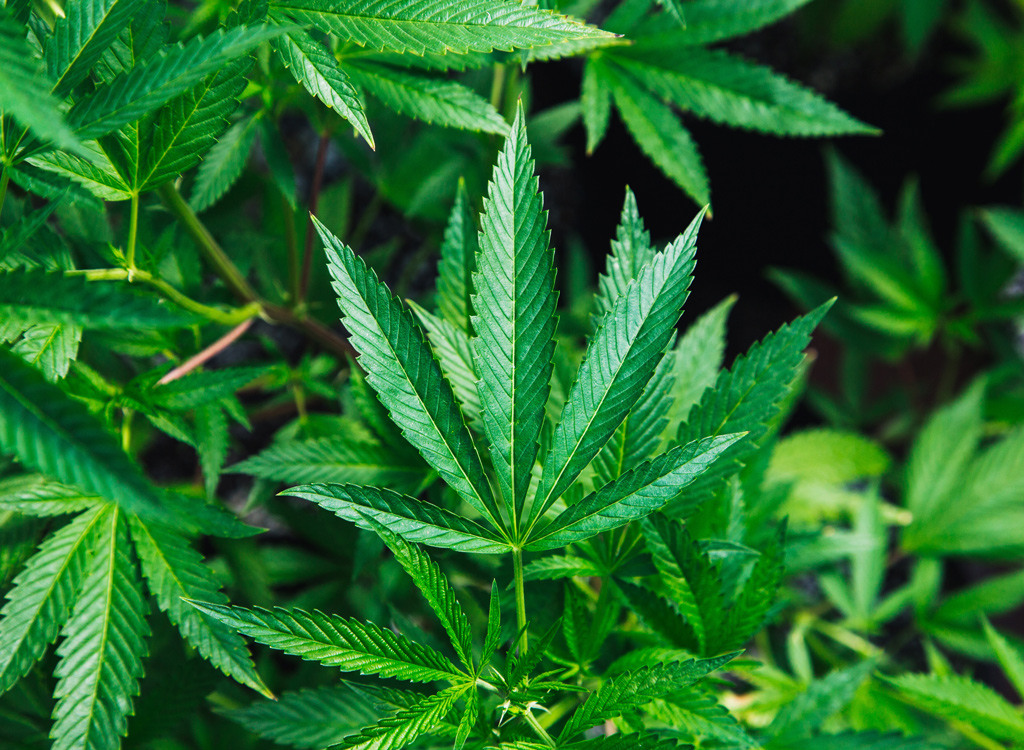Although marijuana has been typically associated with younger adults, that is a stereotype according to the National Library of Medicine. People over 50 are using the drug more often now.
"As an older population grows in the United States that has a tolerant attitude toward marijuana use, the dynamics of marijuana use and the effects of marijuana on personal, social, and health outcomes among older adults require attention," the site states. And according to a study published in the International Journal of Drug Policy, marijuana use in people over 65 increased by 75 percent between 2015 and 2018. That said, while marijuana does provide a lot of medicinal benefits, it does affect everyone differently and experts reveal it can cause unexpected side effects. Read onand to ensure your health and the health of others, don't miss these Sure Signs You've Already Had COVID.
1. Why more older people are using marijuana

Chaye McIntosh, Clinical Director, ChoicePoint says, "Aging is a major factor linked to metabolic changes, various morbidities, increased prescription drug usage, and a general loss in functioning. In recent years, the usage of marijuana for recreational and medical purposes among older individuals has expanded dramatically to reduce the visible and non-visible effects of aging."
2. Cannabinoid Hyperemesis Syndrome (CHS)
McIntosh shares, "Long-term cannabis usage causes CHS, which is characterized by severe cyclical nausea and vomiting, as well as epigastric or periumbilical abdomen discomfort. It goes unnoticed due to a lack of awareness. The prevalence rate is around 95% among users."
Cedars Sinai states, "Marijuana has very complex effects on the body. Experts are still trying to learn exactly how it causes CHS in some people. In the brain, marijuana often has the opposite effect of CHS. It helps prevent nausea and vomiting. The drug is also good at stopping such symptoms in people having chemotherapy. But in the digestive tract, marijuana seems to have the opposite effect. It actually makes you more likely to have nausea and vomiting. With the first use of marijuana, the signals from the brain may be more important. That may lead to anti-nausea effects at first. But with repeated use of marijuana, certain receptors in the brain may stop responding to the drug in the same way. That may cause the repeated bouts of vomiting found in people with CHS. It still isn't clear why some heavy marijuana users get the syndrome, but others don't."
3. Psychosis
According to McIntosh, "Chronic users are at high risk of developing chronic psychosis disorders like schizophrenia. It causes hallucinations and personality disorders in 95% of users."
The National Institute on Drug Abuse states, "Several studies have linked marijuana use to increased risk for psychiatric disorders, including psychosis (schizophrenia), depression, anxiety, and substance use disorders, but whether and to what extent it actually causes these conditions is not always easy to determine. Recent research suggests that smoking high-potency marijuana every day could increase the chances of developing psychosis by nearly five times compared to people who have never used marijuana. The amount of drug used, the age at first use, and genetic vulnerability have all been shown to influence this relationship. The strongest evidence to date concerns links between marijuana use and psychiatric disorders in those with a pre-existing genetic or other vulnerability."
4. Cognitive motor deficits
McIntosh reveals, "Continued marijuana usage affects motor coordination to more complex executive skills including planning, organizing, solving problems, making decisions, remembering, and controlling emotions and behavior. These impairments are reported in 95% of the population of users."
5. It could harm your mental health
Dr. Steve Hruby, a Doctor of Chiropractic and founder at Kaizen Progressive Health explains, "Marijuana does not provide a pleasant experience for everyone. It can make you feel worried, fearful, terrified, or paranoid. Marijuana use may increase your risk of developing clinical depression or exacerbate the symptoms of any mental illnesses you already have. Scientists aren't sure why this is. It can make you paranoid or lose contact with reality, causing you to hear or see things that aren't there in large doses."
6. Your perceptions may be skewed
"Marijuana might impair your judgment and senses," says Dr. Hruby. "The effects vary based on the potency of your marijuana, how you consumed it, and how much marijuana you've already consumed. It might:
- Enhance your senses (colors might seem brighter and sounds might seem louder)
- Change your perception of time
- Your motor abilities will be harmed, and driving will become more unsafe.
- Reduce your inhibitions so that you can engage in hazardous sex or take other risks."
7. It could be harmful to your heart
Dr. Hurby states, "Marijuana increases your heart rate. The heart normally beats 50 to 70 times per minute. After the effects kick in, the heart rate can rise to 70 to 120 beats per minute or higher. The strain, as well as the tar and other compounds in marijuana, may increase your risk of heart attack or stroke. If you're older or already have cardiac problems, the risk is significantly greater professional, or personal problems."




